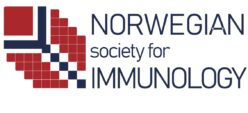
In our next seminar from the NSI Rising Star Seminar series, we will be hosting Abigail Vanderheiden (Washington University in St. Louis, Missouri, USA) with a talk on “ Investigating the contribution of the immune response to memory deficits after COVID-19 in mice”.
Look forward to seeing you there!
Meeting details:
Thursday, 5. September, 15.00
https://uio.zoom.us/j/65066940943?pwd=CX8za4Wa20jZLAib9fHOXQzQzzanRn.1
Abstract:
Millions of patients with post-acute symptoms of COVID-19 or ‘long-COVID’ are accumulating worldwide, however, the underlying mechanisms driving neurological dysfunction and how vaccination impacts risk are unknown. Current evidence suggests that SARS-CoV-2 does not cause widespread infection of the central nervous system (CNS). Despite this, post-mortem analyses of the hippocampi of COVID-19 patients have identified microglial activation, decreased neurogenesis, blood-brain barrier disruption, and pro-inflammatory cytokine production, including Interleukin-1b (IL-1b) a key component of the innate immune defense against viral infection. Here, we utilize a novel mouse model of the neurological effects of COVID-19 to investigate how innate immunity impacts memory deficits after SARS-CoV-2. We find that intranasal infection of C57BL/6J mice with the beta variant of SARS-CoV-2 (B.1.351) causes post-acute memory deficits as measured via the Novel Object recognition test that correlate with decreases in hippocampal neurogenesis and trisynaptic circuit synapse number. We find that SARS-CoV-2 infection prompts peripheral immune cell infiltration, persistent microglial activation, and elevated levels of IL-1b in the hippocampus. Mechanistically, we demonstrate that IL-1R1 signaling on neural stem cells promotes loss of hippocampal neurogenesis and subsequent memory deficits after SARS-CoV-2. Vaccination with a low dose of adenoviral vectored Spike protein prevents production of IL-1b in the hippocampus and subsequently protects against loss of neurogenesis and memory deficits after breakthrough SARS-CoV-2 infection. Combined, these data identify microglial production of IL-1b as one pathway driving memory deficits after COVID-19 that can be prevented by prior vaccination.
Bio:
Dr. Vanderheiden is a post-doctoral research scholar in the laboratory of Dr. Michael Diamond at Washington University in St. Louis, Missouri, USA. Dr. Vanderheiden performed her Ph.D. work in Immunology under the mentorship of Dr. Mehul Suthar at Emory University (Atlanta, GA, USA) where she investigated innate immune signaling in response to West Nile virus and SARS-CoV-2 and helped develop a novel mouse model of SARS-CoV-2 infection. She began her post-doctoral training under Dr. Robyn Klein at Washington University in St. Louis, where she used this mouse model to investigate how IL-1 signaling promotes memory deficits after COVID-19. In 2023, Dr. Klein left Washington University and Dr. Vanderheiden moved to the lab of Dr. Michael S. Diamond do continue her post-doctoral studies on how the immune response to SARS-CoV-2 infection impacts post-acute neurological dysfunction after COVID-19.
Key publications:
1. “Vaccination reduces central nervous system IL-1β and memory deficits after COVID-19 in mice.” Nature Immunology (2024): 1-14.
2. “COVID-19 induces CNS cytokine expression and loss of hippocampal neurogenesis.” Brain 145.12 (2022): 4193-4201.
3. “Type I and type III interferons restrict SARS-CoV-2 infection of human airway epithelial cultures.” Journal of virology 94.19 (2020): 10-1128.
